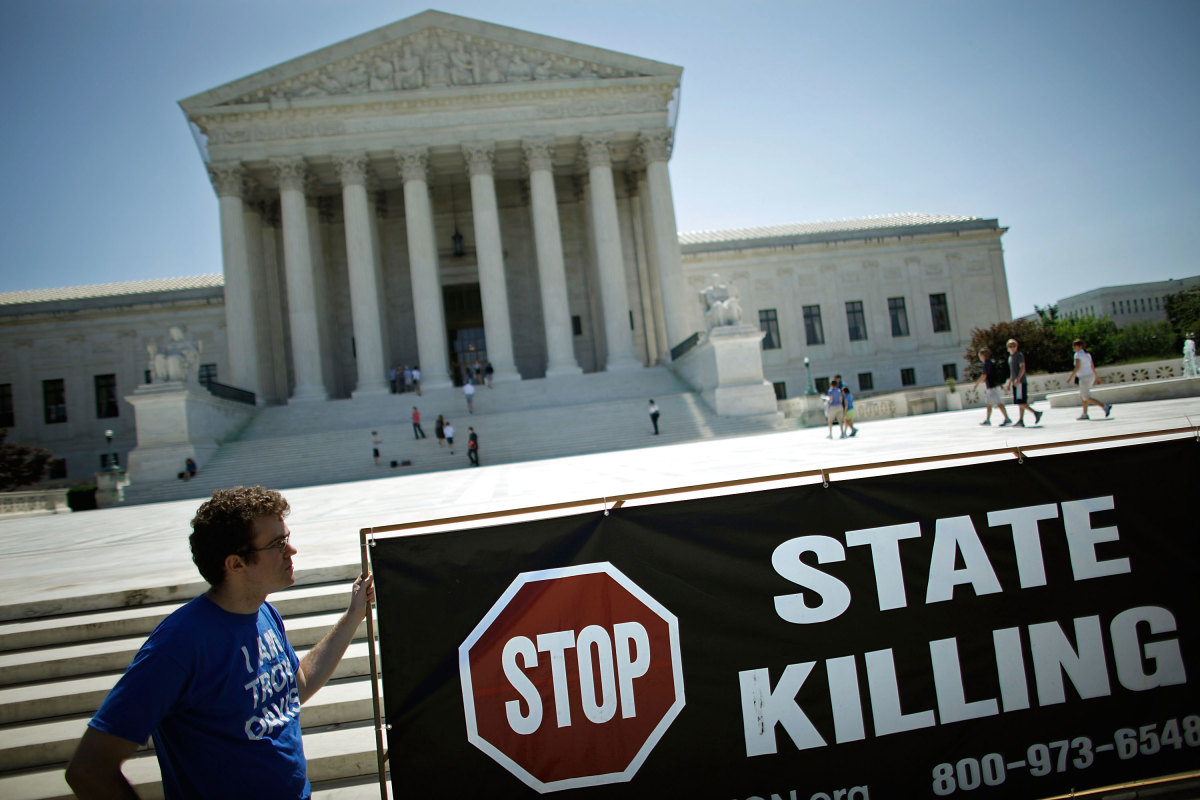
There is an understandable and righteous desire to execute Dylann Roof, especially after he was convicted of such a vile and horrific crime. Seeking this vindication is a primal instinct—to address the wrong that has been committed, to “balance the scales.” When Hamlet states “Haste me to know’t that I, with wings as swift as meditation or the thoughts of love, may sweep to my revenge,” we immediately sympathize with his desire to murder the man who took his father’s life, because his feelings are so easily understood. They are intensely relatable.
A man who takes the life of an individual—an affront to society as a whole—must pay with his own to address the imbalance of justice. Despite this desire to right what is wrong, the balance of justice cannot be achieved in this manner. Truth and fairness are not restored through the use of capital punishment since it betrays and undermines the fundamental principles of our nation, thus depriving us of moral clarity.
Our country was founded on the ideals of ensuring life, liberty and the pursuit of happiness: the fundamental principles that outline the American experiment. Power is vested in the people to secure these rights through the establishment of a republic, and it is bound to protect these rights from the tyranny of the state or the coercion of private individuals. This is why when one commits murder, or any other act that deprives an individual their natural rights, the state removes him from society and places him in prison. He is punished for his offense and cannot continue to usurp the rights of others. This is why it is unnecessary to kill the offender for their crime to maintain our fundamental principles. To uphold our guiding ideals of life, liberty and the pursuit of happiness, placing offenders in prison to remove them from society is both necessary and sufficient.
We must then confront the question: Is it moral for the state to have the right to kill citizens that no longer pose an immediate threat? If murder is insufferable for a civil society and must be outlawed, then on what grounds does the state possess the right to kill premeditatively? If the state is a representative of the people, a collective body of private individuals, then is there any justification for the state to be empowered to take the life of a criminal when a private citizen could not?
Some will argue that the government already coerces citizens in ways that private individuals cannot, like imprisoning people and seizing private property in the form of taxation or cases of eminent domain. This is a false comparison because the imprisonment of offenders and the taxation of citizens are necessary functions of a republic that seeks to secure the rights of its people. When we unnecessarily grant the state the right to premeditatively kill people, however, we sacrifice our founding principles in allowing the state to perpetrate what we hold at an individual level to be an intolerable transgression: murder.
Our nation’s legal system is not perfect, as numerous instances of prosecutorial and police misconduct have resulted in the false imprisonment of thousands of Americans. Elected prosecutors and law enforcement officials are often incentivized to make arrests and seek the highest punishments in the court of law, to indicate to the public that “law and order” is being enforced. What can result is the tampering of evidence, the coercion of false testimony, and the selection of unfavorable jurors for some defendants. Even when standard legal procedures are followed, some innocent people are inevitably convicted of crimes they did not commit.
Recent studies have indicated that upwards of 4.1% of defendants sentenced to death in the United States are later found innocent. With roughly 2,900 people on death row, it can be reasoned that approximately 120 of the convicted offenders are innocent of their crimes. This is simply intolerable for a free and civil society and undermines the very foundational principles of our nation. The punishment of death is irredeemable and irreversible and is therefore incompatible with a legal system that commits any margin of error.
Wishing death upon Dylann Roof is an easy decision. He committed a heinous crime without remorse, and it can be difficult to conceptualize a world in which he deserves to live. Despite our inner urge for vindication, we must resist, for it is only through the practice of just restraint that a free republic is able to survive. The clamor for capital punishment is derived from moral hypocrisy and is irreconcilable with a nation that values the virtues of life and liberty. We should rather strive for what is just and call upon, in the words of President Lincoln, “the better angels of our nature.”
